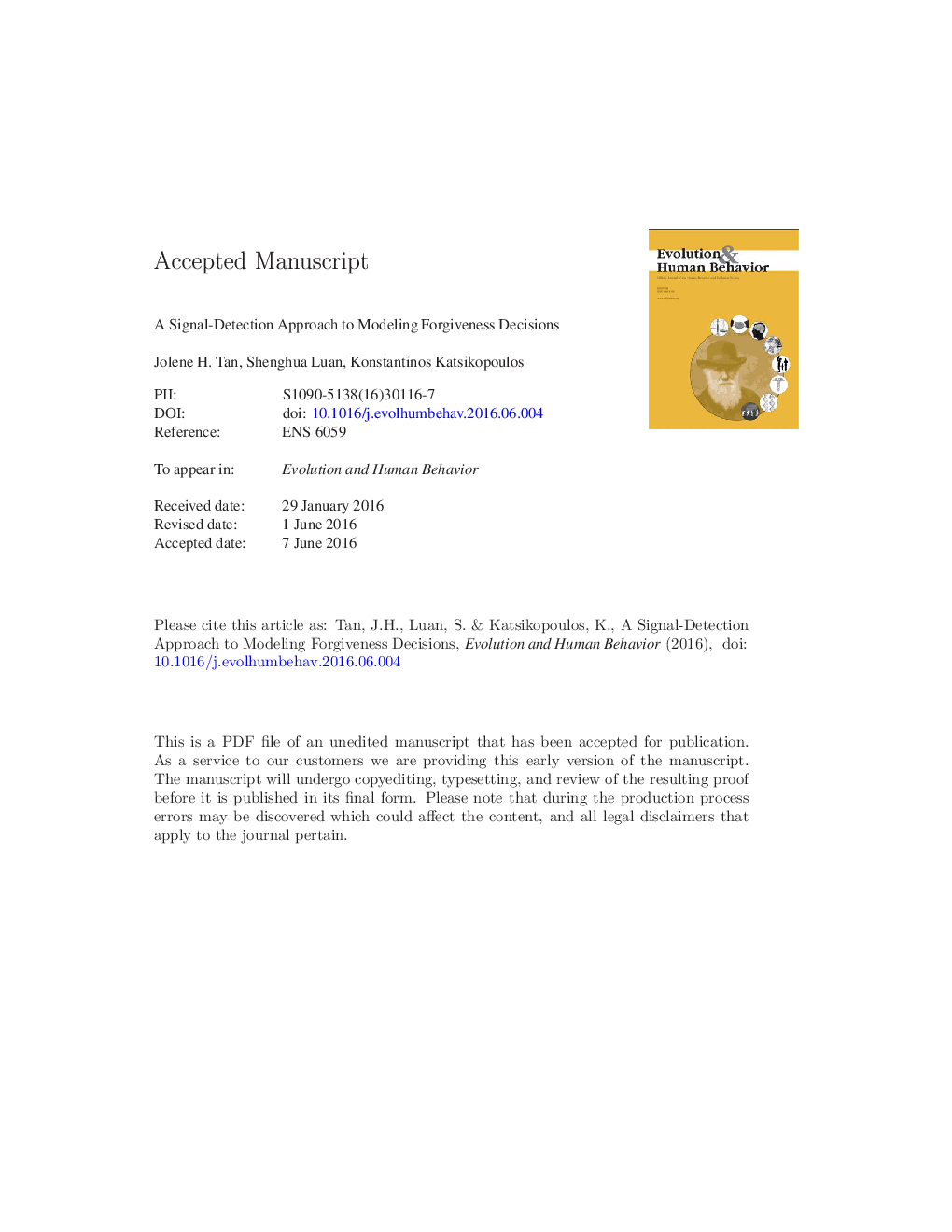ترجمه فارسی عنوان مقاله
یک روش تشخیص سیگنال برای تصمیم گیری های بخشندگی مدل سازی
عنوان انگلیسی
A signal-detection approach to modeling forgiveness decisions
| کد مقاله | سال انتشار | تعداد صفحات مقاله انگلیسی |
|---|---|---|
| 131851 | 2017 | 53 صفحه PDF |
منبع

Publisher : Elsevier - Science Direct (الزویر - ساینس دایرکت)
Journal : Evolution and Human Behavior, Volume 38, Issue 1, January 2017, Pages 27-38
ترجمه کلمات کلیدی
همکاری، بخشش، درختان فوری و خالص حکم فرانکلین، نظریه مدیریت خطا، تئوری تشخیص سیگنال،
کلمات کلیدی انگلیسی
Cooperation; Forgiveness; Fast-and-frugal trees; Franklin's rule; Error management theory; Signal detection theory;

